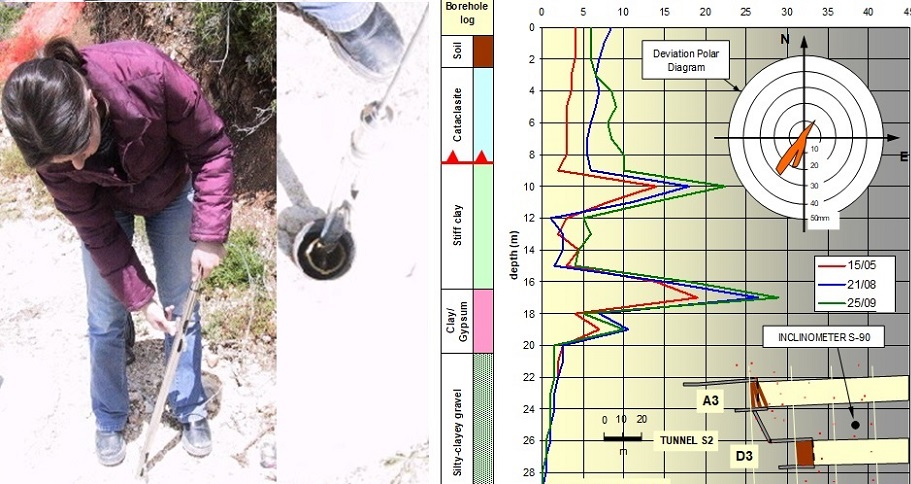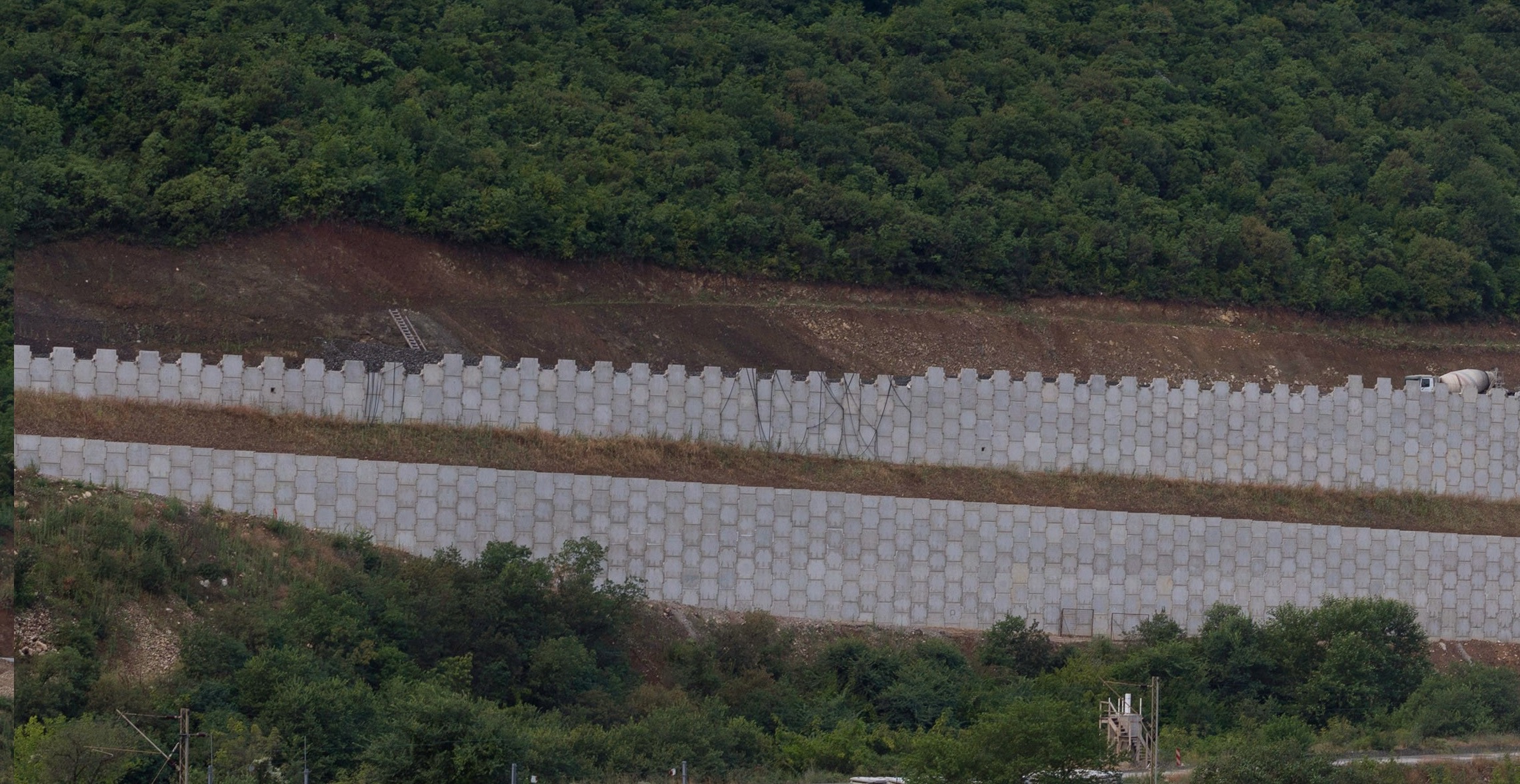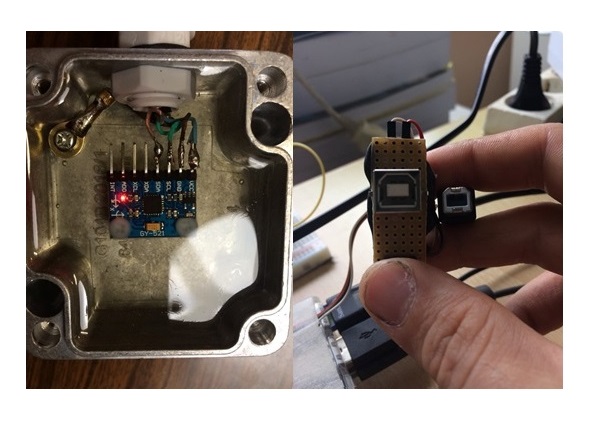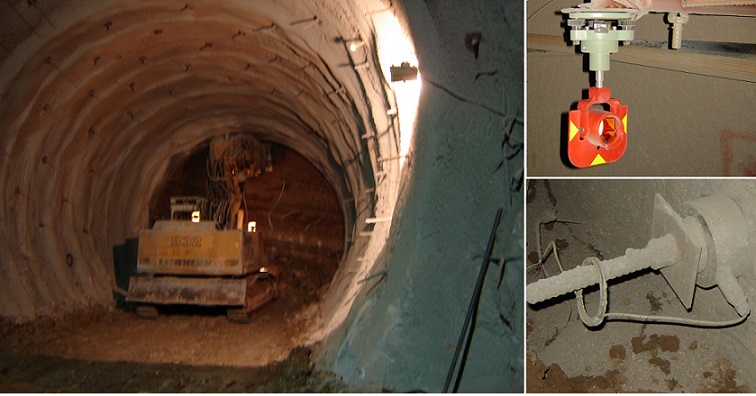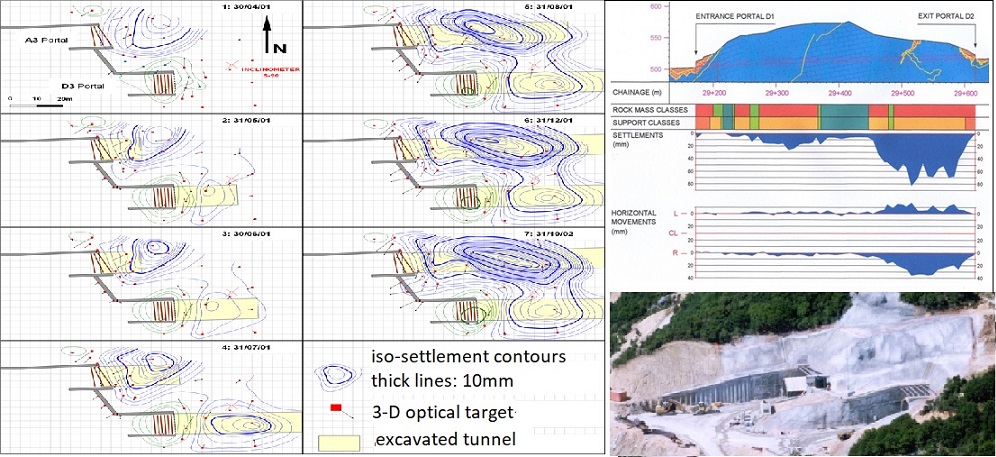Field monitoring
In recent years field measurements play a vital role in the construction process itself. Ground movements associated with tunnelling and consequential settlement have been analysed during the construction of tunnels for the Egnatia Motorway in highly variable and complex rock formations where field instrumentation and tight construction control were necessary. Similarly, field monitoring results were assessed during the construction of stations for the Athens metro. The varying local soil/rock conditions made ground movement difficult to estimate on the basis of precedent. To this end work in the lab is focused on the utilization of monitoring data as a means of promoting safety and reducing risks in tunnel engineering through use of artificial neural networks.
The development of instrumentation forms also a key part of the research into field monitoring e.g. the use of the low-cost MEMS MPU-6050 sensor for implementation in a stationary inclinometer/tiltmeter with online transmission of tilt angle data in real-time, by connecting to an also low-cost Raspberry Pi-3B+ microcomputer. The transmission of data, is made to appear in near real-time via an online API developed in Python, by remotely connecting to the microcomputer’s (host’s) IP address through any Internet connected device.
The abundance of mechanically stabilised earth walls in motorways due to ease of construction and cost-effectiveness has prompted the study of performance related problems. Accumulation of hydrostatic or seepage pressures behind the wall is examined through FE programs such as PLAXIS and Abacus, while soil-reinforcement interface strength parameters are measured in the laboratory.

